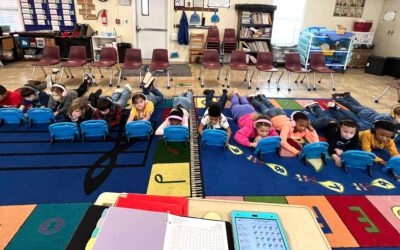PORTLAND, ORE. SEPTEMBER 27, 2016
The Oregon Elementary School Principals Association (OESPA), a division of the Confederation of Oregon School Administrators (COSA), and Learning.com, today announced that for the second consecutive year they are partnering to offer Oregon fifth graders free access to a powerful tool for ensuring they are equipped with digital literacy skills. The TechLiteracy Skills Inventory helps districts evaluate students’ word processing, spreadsheet, database, telecommunications and other critical technology skills. During the program’s inaugural year, 29 districts registered and nearly 1,500 students benefitted from the collaboration.
Learning.com’s TechLiteracy Skills Inventory helps educators ensure that all students have technology skills to successfully complete online tests, such as the Smarter Balanced Assessment taken by Oregon students. This tool also helps teachers gain a deep understanding of students’ technology literacy by providing authentic and detailed student-level reports. Teachers can use these reports to pinpoint technology skills that students are struggling with and identify teaching strategies that will help improve those skills.
“Empowering elementary and middle school students to be able to master digital literacy skills has to be a cornerstone of the educational experience,” said Learning.com CEO Keith Oelrich. “We are excited to maintain our successful partnership with COSA and continue providing students and teachers across Oregon with a dynamic resource that bolsters their digital literacy skills in order to prepare them for a future beyond the classroom,”
To sign-up for and receive the free TechLiteracy Skills Inventory, Oregon administrators can go to https://www.learning.com/COSA and enroll their fifth-grade classes. Deadline for enrollment is October 31, 2016 and the assessment can be administered through January 21, 2017. All schools will have the opportunity to participate in a free training webinar that will explain how to deliver the skills inventory and how to interpret the results.
About the Confederation of Oregon School Administrators (COSA)
The Confederation of Oregon School Administrators (COSA) serves and represents more than 2,200 school administrators, managers and executives. COSA was founded in 1974 to give Oregon’s education leaders a united voice in helping to shape public policy, advocate for schools and speak on behalf of students. COSA’s perspective has earned the respect of educators, the Legislature, the Department of Education and other statewide agencies. COSA consistently puts the interests of schools and students ahead of self-interest.
About Oregon Elementary Principals Association (OESPA)
The Oregon Elementary School Principals Association (OESPA) serves and supports elementary and middle school administrators. OESPA is actively engaged in supporting the implementation of full-day kindergarten, in partnering with early learning providers to ensure that children enter school ready to learn, and advocating for the health and well-being of Oregon children and families.
About Learning.com
Founded in 1999, Learning.com currently partners with one in six school districts and serves five million students nationwide. Learning.com provides K-12 solutions to help students, teachers, and schools excel in a digital world. Districts equip their students with the technology and 21st century skills needed for success on online assessments, college, and the workforce using Learning.com’s digital literacy solutions. Learning.com’s digital content tools help districts build and share custom digital curriculum helping them meet their instructional goals, facilitate personalized learning, and address budget challenges. Through implementation services and professional development, Learning.com serves educators as they integrate technology and digital content into instruction.

Learning.com Team
Staff Writers
Founded in 1999, Learning.com provides educators with solutions to prepare their students with critical digital skills. Our web-based curriculum for grades K-12 engages students as they learn keyboarding, online safety, applied productivity tools, computational thinking, coding and more.
Further Reading
Digital Skills for North Carolina Students
In our district, like most others, the use of digital learning tools has catapulted since the pandemic. With students online more than ever, it’s...
Why Teaching Kids to Code Supports Community Development
Teaching kids to code undoubtedly prepares them for the future of work. But what does this mean for the communities that helped them become career...
Enhancing Digital Citizenship by Understanding Confirmation Bias
Teaching confirmation bias as part of the digital literacy curriculum in schools is essential in today's information-saturated world. Confirmation...



